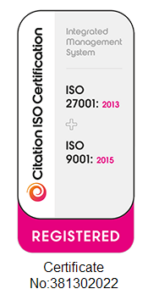The Year of Living Virtually: Be Platform Prepared
“It is not a failure to readjust my sails to fit the waters I find myself in.” – Mackenzi Lee, author
When the Covid-19 pandemic pushed all meetings into the virtual world, many organisations assumed the situation would be temporary, with a return to a ‘new normal’ of a virtual/physical hybrid in 2021.
However, as Covid cases continue to rise and as more and more countries go back into lockdown, it’s clear that in-person meetings won’t be happening anytime soon.
I’ve stated for many months now that virtual is here for the foreseeable future, but it’s understandable that many meeting organisers are eager to return to in-person meetings. These businesses have many years’ experience running physical meetings, their suppliers are in the physical (rather than virtual) world, and the whole infrastructure surrounding their operations is bound up in physical events. Suddenly, they are being asked to change how they do business, and for many that is outside of their comfort zone.
I equate it to a carpet fitter who is suddenly confronted with huge demand for wooden flooring instead of carpets. Does that person train to be a painter? Or do they try to convince customers to invest in a ‘hybrid’ of carpet/wooden flooring? Logically, most will try to do the latter since acquiring a whole new skill set is more challenging and time-consuming.
However, the business world ultimately must adjust to the needs and demands of the market and customer.
When it comes to meetings, is it reasonable to expect delegates to attend live meetings in the middle of a pandemic, much less jump on a plane for a conference?
Even if they were willing to do so, can they even get to that destination and return home? We had experience with one client that was planning to do a live event in Spain until Spain locked down, then considered moving to Italy until Italy locked down, and now they are going fully virtual.
As the realisation grows that the pandemic isn’t going away, we’re seeing organisations transition away from wanting quotes for hybrid events to deciding all their events will be virtual.
Ask, don’t just Google!
At the same time, however, this realisation has caught some organisations out. They don’t really understand what virtual delivery is, and some are wildly Googling virtual platforms, looking at a website and making decisions based on flashy advertising.
They haven’t properly researched what the virtual platform they have looked up will deliver, what might be missing in that delivery and whether it is remotely suitable to their needs. It’s a bit like building a kit car and buying some parts online without considering where you are going to source your chassis and wheels.
As an example, we recently pitched our services to an academic institution in Europe. We provided detailed information about what our service included and how we would support their needs.
The organisation came back to us saying they thought our service was expensive compared to others they were considering, but none of the other platforms they were looking at offered the capabilities and depth we offered or that the organisation would need, including project management, building the platform, streaming, rehearsals, doing the participant engagement, handling on-demand services, and producing and tidying up their videos for them.
The fact is with virtual now here for at least the next 6 to 12 months, you need to make sure you have researched engagement platforms thoroughly, that you are comparing like with like, and that you don’t end up acquiring a service that won’t give you what you need or that will cost you far more than you anticipated because of all the unexpected add-ons.
Rushing to choose a platform without a clear understanding of your needs, your audience and whether you can actually run the technology is a mistake. Virtual is not the same as physical.
The fact is, there is no one-size-fits-all when it comes to virtual platforms.
You need to understand your requirements. Ask yourself what you are trying to do, for what purpose and for what kind of audience. Will the technology deliver everything you need or will you be saddled with something that will involve significant additional investments and expertise?
And if you don’t know what you need or what the best platform for your needs will be, work with someone who can help you. Never be afraid to ask. An experienced meeting engagement organisation will not only save you time and headaches, but ultimately a lot of unnecessary and potentially less than worthy investments.
Leslie Robertson is the Founder of Open Audience, an audience engagement consultancy that specialises in making life sciences meetings more engaging with more positive, successful outcomes – whether in-person or in the virtual space. The Open Audience team helps to strategise and prepare pre- and post-meeting as well as providing real-time support and guidance during the meeting. Open Audience also offers customisable, multilingual engagement platforms that include interactive polling, surveys, and ideas exchange.

